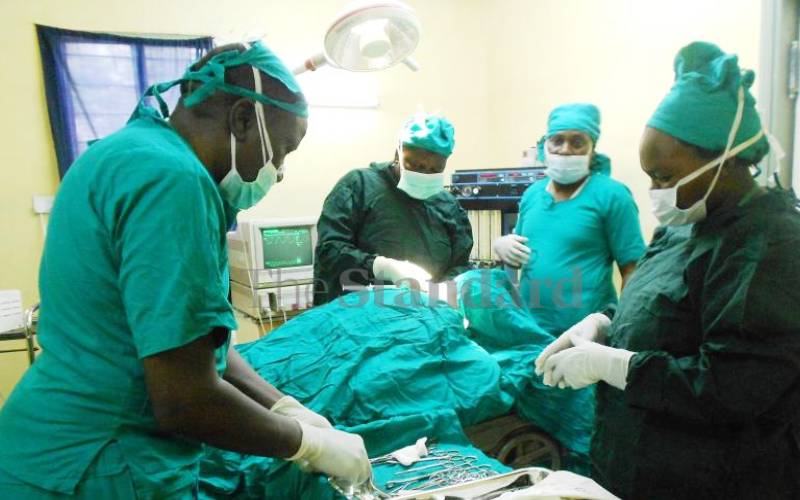×
The Standard e-Paper
Smart Minds Choose Us

Endebbes MP Dr Robert Pukose, who is also a medical doctor, attends to a patient at Endebbes Sub-County Hospital on July 26, 2015. [File, Standard]
When he is not at the dais or on the floor of the House as they say in parliament, Endebess MP Robert Pukose performs surgeries for free at Endebess District Hospital. The hospital isn’t as well-stocked as it should but he makes it work.